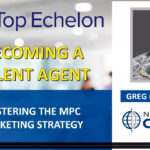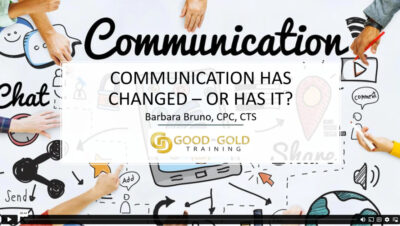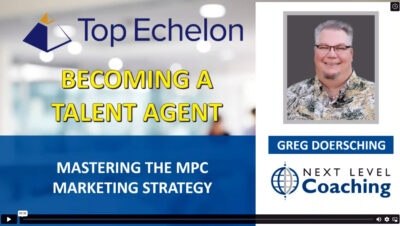The relationship between senior recruiters and their junior counterparts is not just about passing on knowledge. It’s about cultivating growth, fostering resilience, and building a culture of continuous learning. However, the traditional mentorship model often falls short in meeting the diverse needs of today’s recruitment professionals. This is where mindful mentoring enters the picture!
In this blog post, we shall explore the concept of mindful mentoring. This is an approach rooted in presence, empathy, and intentionality. In addition, we’ll take a look at strategies for effectively nurturing relationships with junior recruiters to maximize their potential and enhance team performance.
Understanding Mindful Mentoring
Mindful mentoring represents a departure from the conventional mentor-mentee dynamic. It focuses instead on deep connection, holistic development, and mutual growth. At its essence, it involves embodying a mindful presence during interactions. This means actively listening to the mentee’s needs and aspirations and providing guidance and support tailored to their individual journey.
Unlike traditional mentoring, which may prioritize knowledge transfer and skill acquisition, mindful mentoring places equal emphasis on emotional intelligence, self-awareness, and empathy. This helps create a nurturing environment where mentees feel seen, heard, and supported.
Mindful mentors approach their role with humility and authenticity. They recognize that mentoring is not a one-way street, but rather a reciprocal relationship where both parties learn and grow. They strive to create a safe space where mentees feel empowered to express themselves, ask questions, and explore their potential without fear of judgment or retribution.
By creating trust, mutual respect, and open communication, mindful mentors lay the foundation for meaningful and transformative mentoring experiences that transcend the confines of the workplace.
Benefits of Mindful Mentoring
There are multiple benefits associated with mindful mentoring with junior recruiters. In fact, we have four such benefits, and we have listed them below. They are enhanced engagement and retention, improved performance and productivity, knowledge sharing and collaboration, and succession planning and leadership development.
Let’s examine each of these benefits individually:
Enhanced Engagement and Retention
Mindful mentoring cultivates a sense of belonging and investment among junior recruiters. This leads to higher levels of engagement and retention. When mentees feel valued, supported, and encouraged by their mentors, they are more likely to remain committed to their roles and contribute actively to the team’s success.
By nurturing a culture of care, inclusivity, and belonging, agencies can create an environment where employees thrive, grow, and develop long-term careers.
Improved Performance and Productivity
Mindful mentoring equips junior recruiters with the tools, skills, and confidence they need to excel in their roles. By providing constructive feedback, personalized guidance, and opportunities for skill development, mentors empower mentees to overcome challenges, capitalize on opportunities, and achieve their full potential.
As mentees grow and develop, they become more effective and efficient in their roles. This, of course, leads to increased productivity, performance, and success for the team as a whole.
Knowledge Sharing and Collaboration
Mentoring relationships serve as a conduit for the exchange of knowledge, ideas, and best practices between experienced recruiters and their junior counterparts. Through open dialogue, shared experiences, and collaborative problem-solving, mentors can impart valuable insights and expertise to mentees. This helps them navigate complex recruitment scenarios with confidence and competence.
By building a culture of collaboration, knowledge sharing, and collective learning, agencies can harness the collective wisdom of their team members to drive innovation and excellence in recruitment practices.
Succession Planning and Leadership Development
Mindful mentoring plays a critical role in succession planning and leadership development within agencies. By investing in the growth and development of junior recruiters, mentors groom the next generation of leaders. That’s because these recruiters will be equipped to take on greater responsibilities and drive the organization forward.
Through mentorship, mentees acquire the skills and knowledge needed to succeed. However, they also develop the leadership qualities, strategic thinking, and emotional intelligence required to lead teams, inspire others, and achieve organizational objectives.
Strategies for Mindful Mentoring
Like there are multiple benefits for mindful mentoring, there are also multiple strategies for implementation and execution of this type of mentoring. We’ve listed seven such strategies below.
Once again, let’s examine each of these strategies individually:
Establish Clear Expectations
Begin the mentoring relationship by establishing clear expectations, goals, and boundaries. Take the time to discuss the mentee’s objectives, aspirations, and areas for growth, and collaboratively develop a plan to achieve them.
By aligning expectations and setting mutual goals from the outset, mentors and mentees can ensure a productive and fulfilling mentoring experience. This lays the groundwork for long-term success and growth.
Take a Personalized Approach
Recognize that each mentee is unique, with their own strengths, weaknesses, and learning styles. Tailor your mentoring approach to accommodate individual differences and preferences. Take into account factors such as personality, experience level, and career goals.
By adopting a personalized approach, mentors can better support mentees on their journey, address their specific needs and challenges, and help them unlock their full potential in a way that feels authentic and empowering.
Provide Constructive Feedback
Offer feedback in a constructive and supportive manner, focusing on specific behaviors, actions, and outcomes rather than personal characteristics or traits. Be honest and transparent in your feedback. Highlight both strengths and areas for improvement. Provide actionable guidance and support to help mentees grow and develop.
Encourage mentees to view feedback as an opportunity for learning and development, rather than criticism. Instill a growth mindset that embraces challenges and welcomes constructive feedback as a catalyst for growth and improvement.
Encourage Reflection and Self-Awareness
Foster a culture of reflection and self-awareness by encouraging mentees to critically evaluate their own performance, strengths, weaknesses, and areas for development. Encourage them to reflect on their experiences, successes, and challenges, and identify lessons learned and opportunities for growth.
By encouraging self-awareness, introspection, and self-reflection, mentors empower mentees to take ownership of their development, set meaningful goals, and proactively seek out opportunities for growth and improvement in their personal and professional lives.
Lead by Example
As a mentor, lead by example by demonstrating professionalism, integrity, empathy, and a commitment to continuous learning and development. Model the behaviors, attitudes, and values you wish to instill in your mentees. These include resilience, adaptability, humility, and a growth mindset.
By embodying these qualities and leading with authenticity, mentors inspire mentees to emulate their positive traits, cultivate their own leadership skills, and strive for excellence in their personal and professional endeavors.
Provide Opportunities for Growth
Offer mentees opportunities to stretch beyond their comfort zones, expand their horizons, and develop new skills and competencies. Assign challenging projects, delegate responsibilities, and provide exposure to different aspects of the recruitment process. This can help mentees broaden their skill set, deepen their expertise, and build confidence in their abilities.
By providing opportunities for growth, exploration, and learning, mentors empower mentees to realize their full potential, pursue their passions, and achieve their career aspirations with courage and conviction.
Promote Work-Life Balance
Recognize the importance of work-life balance, well-being, and self-care in fostering employee engagement, satisfaction, and productivity. Encourage mentees to prioritize self-care, maintain a healthy balance between their professional and personal lives, and set boundaries around work commitments. This way, they can avoid burnout and maintain resilience in the face of adversity.
Lead by example by practicing self-care, setting realistic expectations, and promoting a culture of well-being, empathy, and support within the organization. By prioritizing the well-being of mentees, mentors create an environment where individuals thrive, teams flourish, and organizations prosper in the long run.
The Final Word on Mindful Mentoring
Mindful mentoring represents a paradigm shift in the way we approach mentorship within agency recruitment organizations. By prioritizing presence, empathy, and intentionality, mentors can create a supportive and empowering environment where junior recruiters feel valued, supported, and inspired to reach their full potential.
Through clear communication, personalized guidance, and a commitment to continuous learning and development, agencies can cultivate a culture of mentorship. This culture can drive individual and collective success in the ever-evolving world of recruitment.
As agency recruiters and search consultants, embracing mindful mentoring is not just about imparting knowledge and skills. It’s about creating meaningful connections, promoting self-awareness, and empowering junior recruiters to become the best versions of themselves. By investing in the growth and development of their team members, agencies can create a competitive advantage, foster innovation, and position themselves as leaders in the industry.
Ultimately, mindful mentoring is a powerful tool for building strong, resilient teams that are equipped to navigate the challenges and opportunities of the recruitment landscape with confidence, compassion, and integrity!









